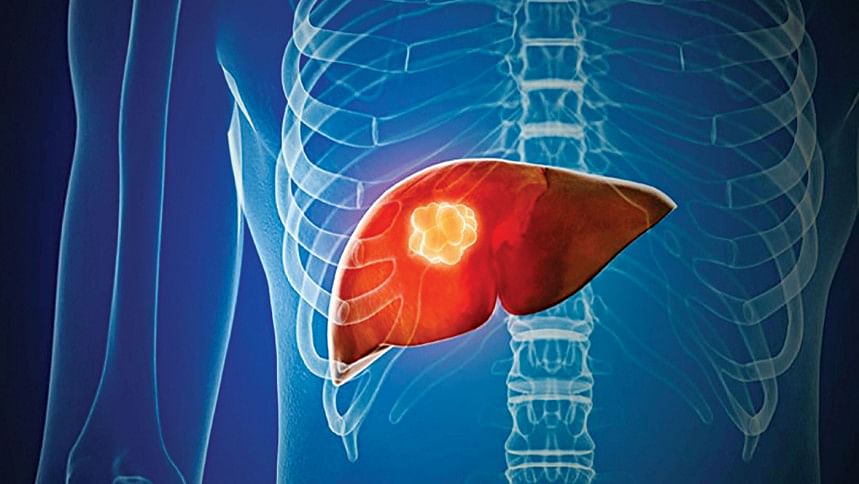Might metformin protect against hepatocellular carcinoma?

Metformin monotherapy and strict glycemic control were associated with lower risk in patients with diabetes and nonalcoholic fatty liver disease. Diabetes and nonalcoholic fatty liver disease (NAFLD) have well-established epidemiologic links; NAFLD, in turn, is a risk factor for hepatocellular carcinoma (HCC), which is typically mediated by steatohepatitis and cirrhosis. These findings raise the question of whether diabetes control – or specific diabetes medications – may reduce the risk of HCC.
Researchers in the U.S. identified 86,000 patients diagnosed with NAFLD and type 2 diabetes between 2004 and 2008. Approximately 500 patients developed HCC over a 10-year average follow-up period. Metformin monotherapy was associated with a significantly lower risk of HCC in analyses that controlled for numerous confounding variables. No other diabetes treatment, either alone or in combination, reduced the risk of HCC. Controlling for confounders such as diabetes, exceptional glycemic control (i.e., having glycosylated haemoglobin [HbA1c]) was also associated with lower HCC risk.
Metformin may protect people with diabetes from HCC. Metformin has in vitro anticancer properties, and studies have linked it to lower cancer risk. The current observational findings support metformin monotherapy in NAFLD and diabetes patients, assuming good glycemic control can be maintained with this drug and lifestyle changes.

 For all latest news, follow The Daily Star's Google News channel.
For all latest news, follow The Daily Star's Google News channel. 



Comments